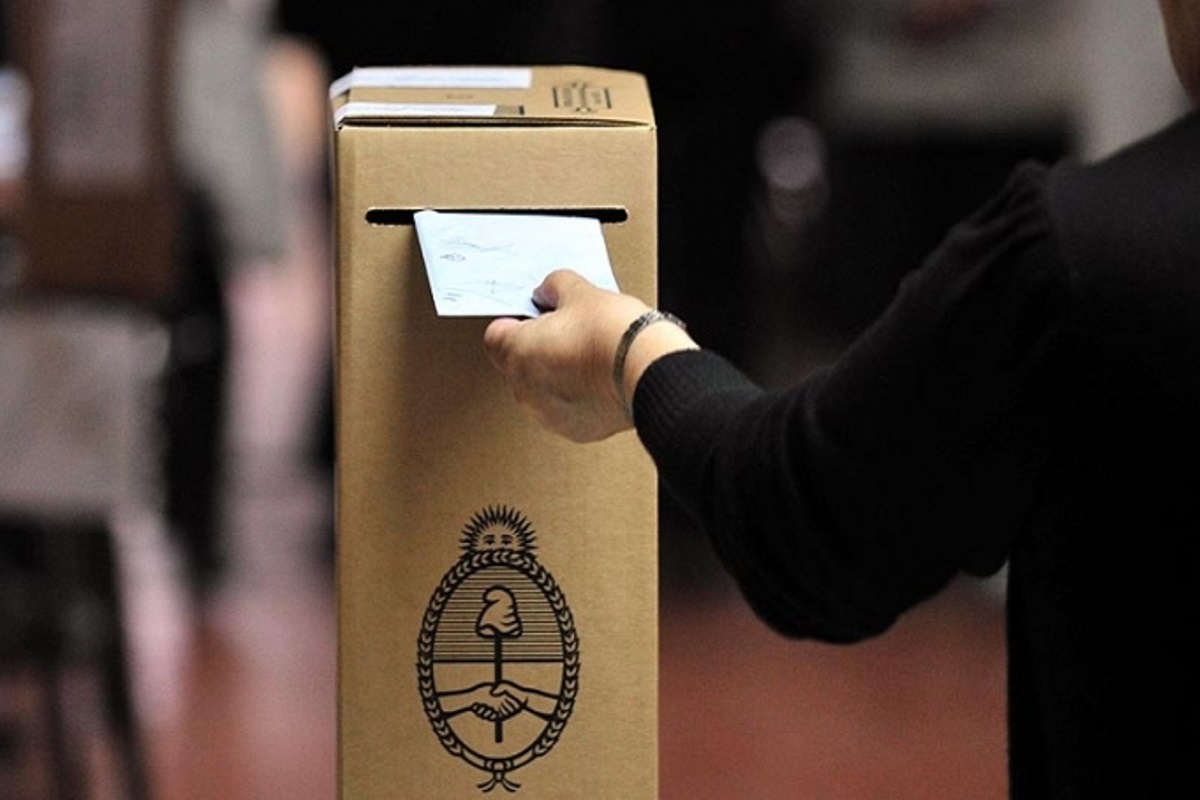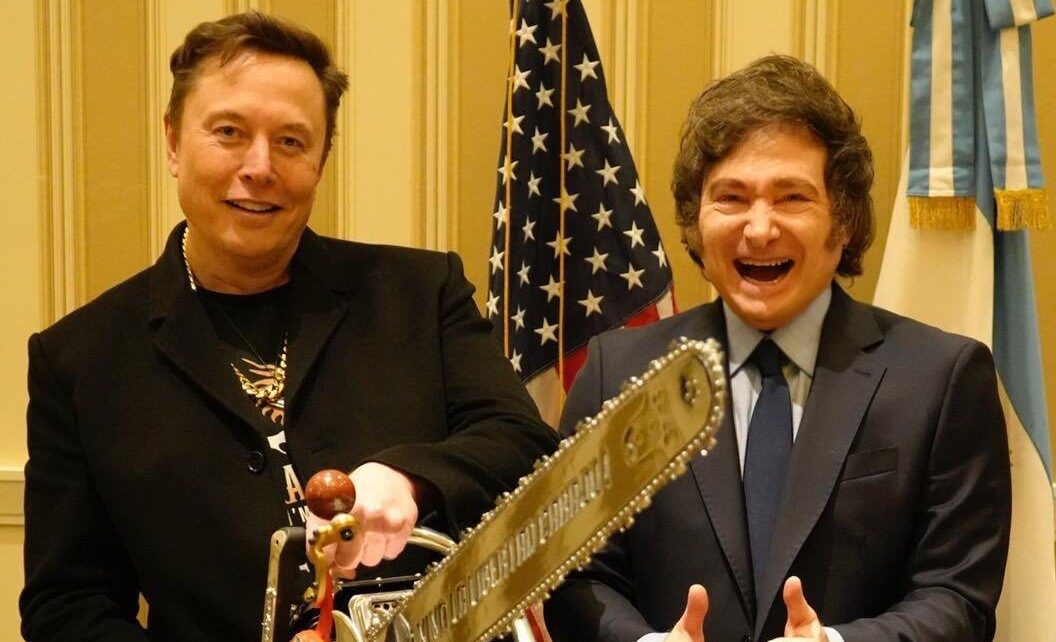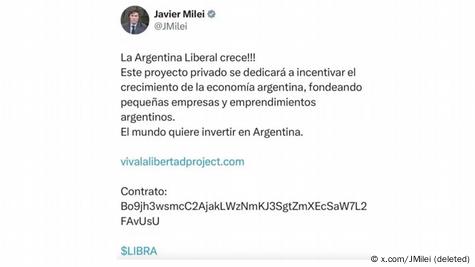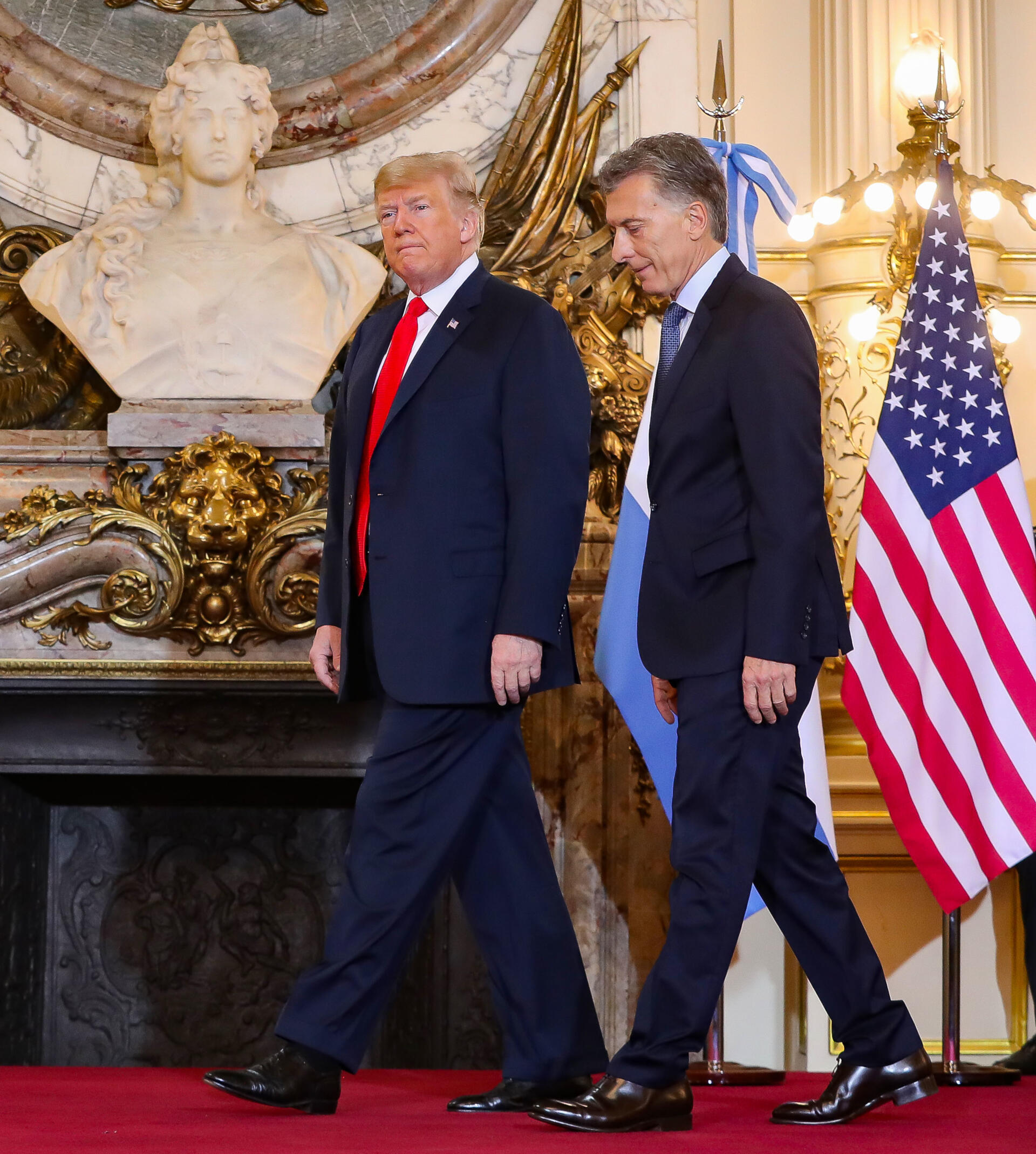
By Ariela Ruiz Caro
Last November, Kristalina Georgieva, the Managing Director of the IMF, met with President Javier Milei during the Summit of the 20 in Rio de Janeiro and they talked about the significant progress his government had made. Since then, the Argentine authorities have announced a long-awaited loan agreement with the Fund on multiple occasions, which the IMF board has had to diplomatically deny.
Last week, after Milei and his Minister of Economy announced again that an agreement had been reached with the IMF and that Georgieva had authorized the disclosure of the figure of 20 billion dollars of freely available funds, the spokeswoman for that institution, Julie Kozack, clarified that 20 billion is the amount requested by Argentina, but that it had not yet been agreed with the staff. Meanwhile, the Central Reserve Bank of Argentina continues to intervene in the foreign exchange market and divest itself of dollars from its reserves, while the country risk increases in the face of the threat of a devaluation of the artificially sustained peso.
A government in free fall
Fifteen months after Javier Milei, a disciple of the Austrian school of economics, became president in December 2023, the initial enthusiasm that the libertarian president aroused in Argentines has begun to deflate in the polls. His fall from grace occurs just before his first referendum–the mid-term legislative elections next October that will elect 24 seats out of a total of 72 in the Senate and 127 seats out of a total of 257 in the House of Representatives.
This year will be the first since the 2013 elections that will not hold the “Open, Simultaneous and Compulsory Primaries” (PASO) that formerly defined the candidates of the different political spaces through a separate vote where the groups could present their internal platforms to be submitted to public scrutiny. This year, Congress approved legislation to suspend this electoral event.

According to the latest survey by the Zubán Córdoba consultancy, conducted in the third week of March, support for the Milei government continues to fall. Milei’s negative image stands at 58.4%, while 41.6% outright reject him. The poll also reveals that 63% of those surveyed have a negative image of the IMF and the same percentage reject the possibility of a new loan from this body. On the other hand, a survey carried out by the San Andrés University reveals a possible tie between the ruling party La Libertad Avanza and the opposition with 29%.
An analysis of voters’ intentions by party shows that Milei’s La Libertad Avanza Party leads with 27%, followed by Peronism with 24%. The Republican Proposal (PRO) party of former president Mauricio Macri has had serious differences with Milei that have contributed to splits. It’s current approval rating has consequently dropped to around 5%, followed by Federal Peronism and the radical left with even lower ratings.
It is important to remember that, despite the Peronist governments that have been in power since 2003 (with the exception of the period presided over by Mauricio Macri), the Minister of Economy of former President Alberto Fernández and presidential candidate of the Peronist Frente de Todos, Sergio Massa, won the elections in the first round against Milei with 37%. Milei did not reach 30%.
The Peronist candidate came just three percentage points short of winning the presidency in the first round of the election, which requires 40% of the vote and at least a ten percentage points ahead of the nearest rival to win the election. If the non-Kirchnerist Peronist governor of the province of Córdoba, Juan Schiaretti, who with his party Hacemos por Nuestro País, obtained 6.8% of the votes, or the leader of the Partido Frente de Izquierda y de los Trabajadores, Myriam Bregman, who obtained 2.7% of the votes, had supported Massa, Argentina would once again have had a Peronist president. In the second round, Mauricio Macri’s PRO closed ranks with Milei, who won with 56%, compared to Massa’s 44%.
The most drastic austerity in history
With his legitimate victory, chainsaw in hand, and the enthusiastic support of his voters, Milei carried out the most severe austerity program in Argentine history. In just two months he managed to reverse the fiscal deficit by ensuring that revenues exceeded expenditures even after interest payments on the debt. This fiscal surplus was achieved as a result of the liquidation of retirees’ assets, reduction of salaries, suspension of the transfer of resources to the provinces, elimination of subsidies and social benefits like sending food to soup kitchens and medicines to hospital, defunding universities, cultural, science and technology institutions, freezing public works, massive layoffs in the public sector, among others. Gone was the promise that the adjustment would fall on the so-called political caste.

Closing the fiscal gap during the first two months of his administration represented a resounding success for Milei, and the European far right and his idol Donald Trump rained praised on the Argentine president. But the economic adjustment and stabilization program had a drastic effect in cutting the purchasing power of wages, reducing industrial production, wiping out small and medium-sized enterprises, and causing a fall in consumption. All this has led to a sharp increase in poverty and indigence and a 1.7% drop in the economy.
After 15 months, this blow to the lives of the majority of Argentinians and the extremely serious corruption case in which Milei is engulfed are beginning to sap the citizens’ hope.
Milei and the CryptoGate scandal
On Feb. 14, Javier Milei posted a message on his social networks promoting a cryptocurrency called Libra. On his X account and other social networks, he wrote: “Liberal Argentina is growing. This private project will be dedicated to incentivizing the growth of the Argentine economy, funding small Argentine companies and entrepreneurship. The world wants to invest in Argentina.”
Hours after the publication, the price began to rise until, at its peak, there was a massive sell-off that sent its value into free-fall. As a result, a dozen people benefited to the tune of 90 million dollars, while more than 40,000 people who invested in this cryptocurrency both in Argentina and around the world–especially US citizens where the company sponsoring it was registered–lost their entire investment. These figures have been calculated by the Spanish economist Eduardo Garzón, who considers it to be a full-blown Ponzi scheme promoted by the Argentine president.
Milei had to delete his message a few hours later and wrote: “A few hours ago I posted a tweet, like so many others countless times, supporting a supposed private venture to which I obviously have no connection whatsoever. I was not familiar with the details of the project and after having familiarized myself with them I decided not to continue publicizing it (that is why I deleted the tweet). Except for his fanatical followers, nobody else believes him or, at least, doubts that he was not familiar with it.

Javier Milei now faces an investigation in the Argentine Congress and in the Anti-Corruption Office. The case is also in the hands of the US Department of Justice and the Federal Bureau of Investigation (FBI), which received a criminal complaint against the perpetrators of the massive fraud. The complaint was filed by Moyano & Asociados, an Argentine law firm specializing in international insolvency and financial fraud cases, which also notified the US Securities and Exchange Commission (SEC).
On behalf of its affected clients, the law firm explicitly requested an investigation into the role of President Milei in this scam, “given that he has promoted it and in the past promoted several ventures that ended up in scams”. The firm believes that this “necessarily involved those who organized and created the Libra project and also, to the same extent, those who promoted it and lent credibility and support to the project”. The corruption case continues to balloonand along with an increase in country risk, the looming currency crisis and growing social unrest political and economic tensions are on the rise in Argentina.
Memories of the future
It is worth remembering that in 2018 Donald Trump pressured the IMF to grant a loan, the largest ever granted by the organization, to his friend then-president Mauricio Macri. The loan helped Macri’s party win the mid-term legislative elections. The European Union and the IMF authorities themselves opposed teh loan, as they foresaw what was to come. Much of that nearly $57 billion was used to return dollars to investors who had brought them into the country to exchange for pesos and invest in local financial instruments that generated high rates of return.

The pesos remained in the Argentine financial system as long as the local currency remained stable against the dollar. But when a currency crisis began to emerge, similar to the one the Milei government is suffering today, investors withdrew from their peso investments and demanded dollars to take them out of the country. Those with privileged information acted before it was clear to most that a devaluation was imminent. Thus, a large part of this IMF loan was used to finance the flight of capital from the big beneficiaries of Macri’s government, just as President Milei will do with the loan he now wants from the IMF.
Argentines are remembering that although Macri’s party won the mid-term legislative elections, shortly after that victory, and despite the huge loan granted, his government was forced to split the exchange rate into an official dollar and a free (blue) dollar that Macri had inherited from Kirchnerism and unified as soon as he began his term. He also reinstated price controls on basic foodstuffs (the so-called “cuidados” prices), among other measures that he had strongly criticized in the past. In these circumstances, Macri ended up losing the 2019 elections in the first round to Alberto Fernández.
Milei and the IMF
The allegations of corruption against the president, denouncements regarding the money collected by his sister Karina for arranging appointments with Milei while only granting interviews to increasingly few friendly journalists, the increase in social protests and repression, Milei’s drop in the polls, the currency crisis and the impossibility of further reducing inflation, are some of the elements that have led Milei to turn to the IMF, the institution he criticized constantly during Macri’s presidency.
The government hopes to receive fresh money that will be used to support the exchange rate until the legislative elections in October. Under pressure from the government, the Chamber of Deputies approved an Emergency Decree (DNU) authorizing the government to sign an agreement with the IMF without having agreed on the amounts, dates or conditions of the loan. A blank check.

As was the case during the government of President Macri, the big winners under Milei’s government are the large corporations and those who invested in financial investments, and previously benefited from the so-called money laundering that entered the country without any investigation into its origin. A large part was converted into pesos and invested in various local financial instruments that pay high interest rates. As Macri did during his term, Milei is trying to prop up the exchange rate by investing increasing amounts of dollars from the Central Bank’s reserves to avoid a peso devaluation. The gap between the free and the official exchange rate is widening. Unlike Macri, Milei did not unify the exchange rate, despite his election promise to do so.
His administration’s severe austerity program has reached its limits. Although Argentina ended the year with inflation of 118% in 2024 compared to 211.4% in 2023, the consumer price index for January and February of this year was 2.2% and 2.4%, respectively, and everything seems to indicate that it will be higher in March.
Milei is surrounded by growing public outrage, officials linked to the investment fund BlackRock – the world’s largest, with major interests in buying up land and exploiting Argentina’s wealth within the liberal framework of his government–, and a Donald Trump has not exonerated his puppet from the 25% tariff imposed on aluminum and steel, nor does he seem to be pressuring the IMF to approve the loan. Milei is desperate to obtain the loan to give him a few months’ respite until the October elections, thus avoiding a devaluation that would trigger inflation again, with a population that can’t take it anymore.



